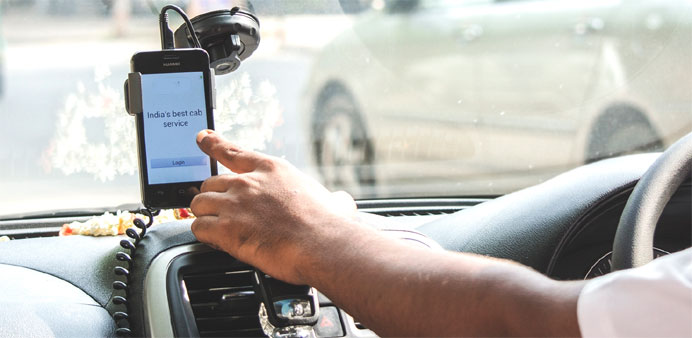AFP/New Delhi
India published new guidelines for web-based ride-hailing firms including US-based Uber and its local rival Ola on Wednesday, after months of legal battles and bans over rising concerns for the safety of women passengers.
The federal Ministry of Road Transport has advised ride-booking services, which connect customers directly with drivers through smartphones, to obtain permits from state administrations to conduct business, the rules posted on its website showed.
The new guidelines, which are reportedly not binding, suggest the "vehicle should be equipped with emergency safety buttons" as well as in-app features that will allow passengers to make calls to police.
They also call for extensive criminal background checks of drivers, specifying they "must be of good character" -- measures aimed at better safety for female passengers, after one of Uber's drivers was charged with raping a woman in New Delhi last December.
Following the rape scandal, the company was accused of failing to conduct adequate background checks after it emerged that the driver had previously been accused of assaulting women.
The new regulations are seen as a boost for Uber and Ola which have been fighting for legal status and license approvals in court after their operations were halted in some cities including New Delhi.
The bans were, however, never effectively enforced.
The latest rules were welcomed by Uber which has expanded rapidly worldwide in recent years despite facing hurdles from regulators in many countries and protests from traditional taxi services.
"The guidelines are a significant step in the right direction," Amit Jain, Uber India president, said in a statement on Wednesday.
According to the six-page advisory, ride-hailing companies must not represent themselves as taxi services unless they are registered as regular taxi operators.
States have been asked to ensure these companies operate with round-the-clock call centres, indicating that their costs could go up.
India's guidelines come just days after China proposed plans to more strictly regulate online ride-booking services.

